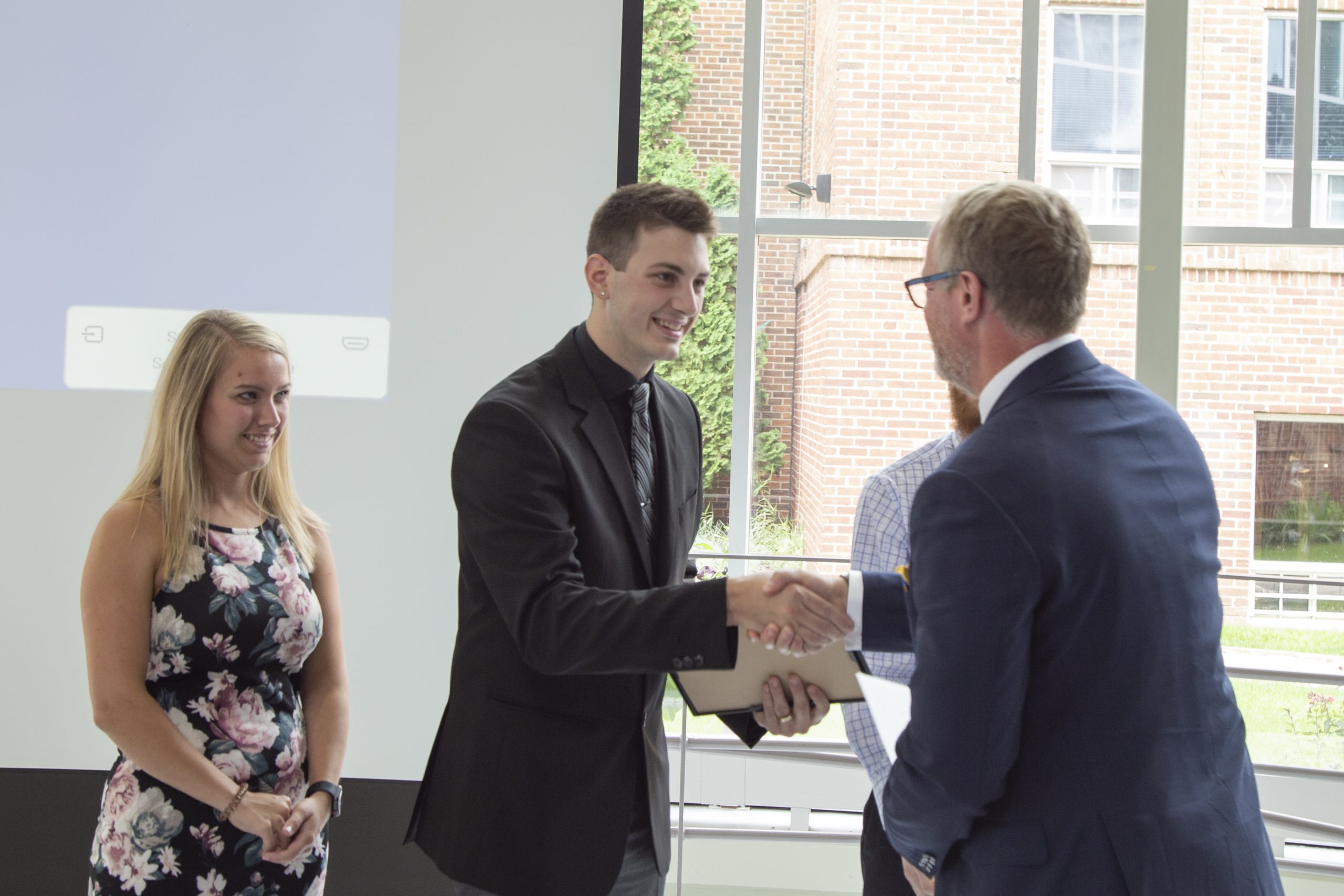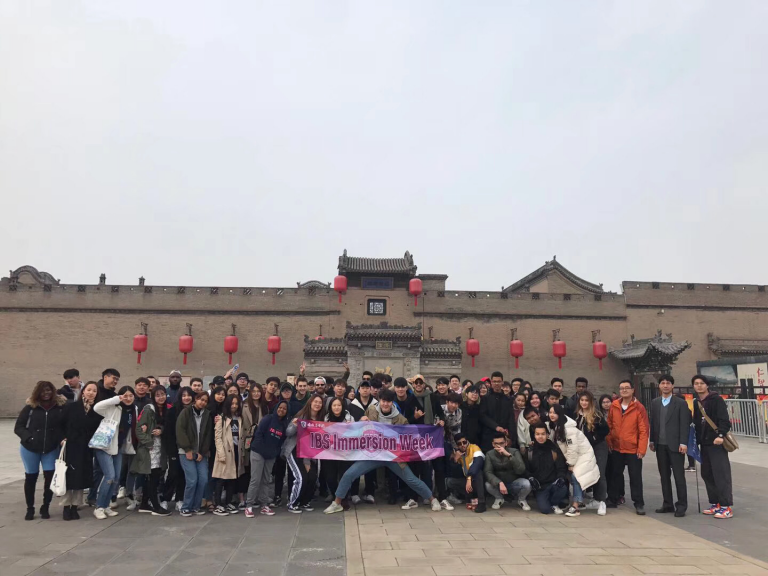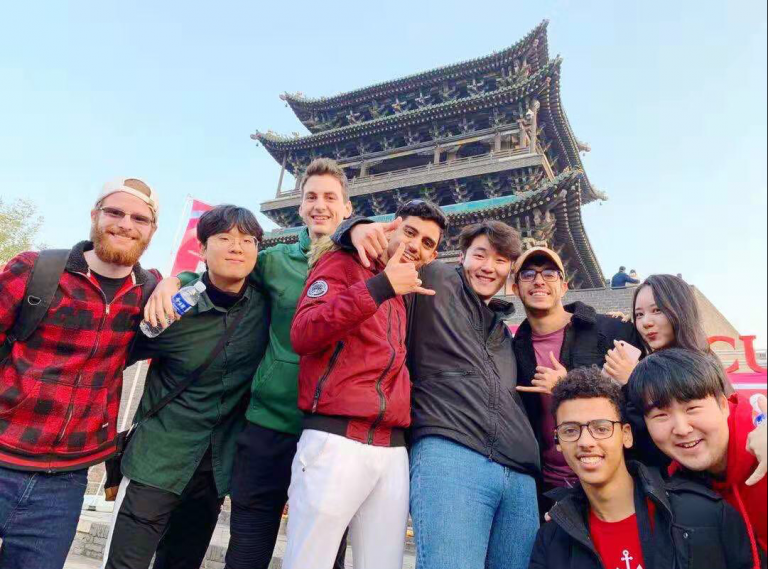In a well-attended ceremony on August 6, 2019, James Wakelin and two other Concordia University of Edmonton (CUE) students were awarded Chinese Government Scholarships for unique dual degrees program in Canada.
James moved to Beijing in late August and he will be studying in China for two years. He is part of the first cohort who will form the Dual Degrees Program in Management. The program allows James to take his first and fourth-year courses at CUE, and his second and third-year courses at Beijing Foreign Studies University.
Hi James, please introduce yourself.
I’m James Wakelin, 23 years old from Canada. I’ve been studying in China for about 3 months now.
Why did you choose to come to China?
I decided to come to China because I believe education is more of an experience. It’s not just what you learn in textbooks.
Coming to China, I had a great opportunity through my university to do a dual degree program. The first one between North America and China. I’m sent as the first person from this batch just to try out the program and experience the culture.

What is it like being in Beijing?
I like it a lot. It is different from Canada. In Canada, there are many ethnicities mixed together in one country, whereas in China, I feel like there are very few foreigners here.
I live off-campus and a lot of people stare or take pictures. But I’m enjoying China, it is very appealing and convenient living here.
Is this your first time in China?
Yes, it’s my first time in China, the first time leaving North America actually, so coming to a completely different country is new to me.
What was it like when you first arrived in China?
When I arrived I wasn’t quite sure what to expect since as I’m the first one from my program to be sent here.
Things are a little different like housing since I’m not living on campus. It was challenging to try and find an apartment on my own because I didn’t speak a word of Chinese. Luckily, I had friends who were able to help me.
You always hear stereotypes when you first visit a country. People back home who have not been to China always tell me to be safe or be careful but coming here I realised that it’s safe and convenient. I’ve had no problem adjusting.
Have you travelled much around China or do you plan to?
I’ve only left Beijing once, and that’s to go to the ancient city of Pingyao for the immersion week with BFSU-IBS.
I got to see a lot of new museums and learn about the culture and history there. I want to check out the rest of China. I’m here for two years and I have plans in the winter holidays to travel around.
What do you think of food in China?
I like it. I’m open to new experiences. The food in Pingyao is definitely different from the food in Beijing. It was quite repetitive and they serve the same food for breakfast, lunch, and supper.
But the rest of China, each zone seems to have its own type of food. I like trying new things so I have no problem adjusting to the different types of food.
What do you think of life outside of the classroom here in China?
Life outside the classroom is very fun. I like to go around and check out different places, so near my apartment, there’s a shopping mall I didn’t even know existed. It was underground but I like to go explore and check out new things.
People are very friendly and are always willing to invite you, especially being part of the international university. There are many people who want to go explore and do new things. I went to lots of karaoke, bars, and museums. There are many activities you can take part in off-campus.
What was the karaoke like in China?
KTV is pretty fun. I realised it is a lot more professional than back home. In Canada, you would just have a classic restaurant or a bar and one microphone. The KTV here in China has many fancy microphones with lots of chandeliers, props, and full stages. It was definitely a good experience.
Can you sing any Chinese songs?
No, I cannot. My Chinese is really bad.
Do you think you need to learn Chinese in China?
If you’re staying in an international area and if you’re only here for one semester, you don’t need Chinese to survive.
I still don’t know much Chinese but it’s easy to get around public transportation in English as well. With apps nowadays its very easy to not know the language and translate it, so I feel like it is not essential but it’ll definitely help you gain better relationships and to be able to go to different places that aren’t very English friendly.
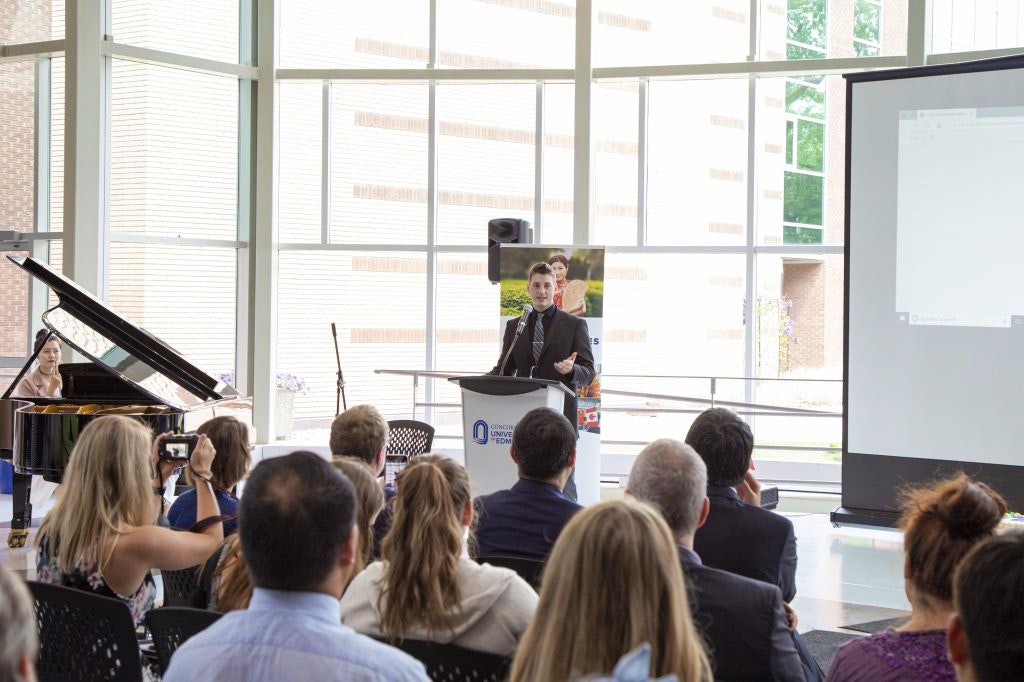
What does your family think about you coming to China?
My family members are traditional farmers. They don’t believe in leaving the home that often or going very far away. When I told them I was going to leave home and go to China they were resistant to the idea at first, but since I had moved away from home a few years before they know that I am my own person.
They told me to be safe. My mom’s exact words were, “I knew you’d do something like this, just be safe”. As long as I keep updating them what’s going on, they’re happy and supportive of me.
Do you think people in Canada understand what China is like?
No, I think China has a stigma for people in Canada, especially around where I’m from which is in Edmonton. Many people there are scared of the unknown and if they need to get a visa to get in, they think that it’s really scary.
Canada is very open to everyone else in the world. With our passport we can get anywhere we want except for China and a few other places.
What do you plan to do in the future?
With an international business degree, I’m planning on opening international businesses, more specifically hospitals. Before this program, I did university towards medicine, so I want to open my own hospital internationally. Canada is privatised but most countries in the world are not privatised for healthcare.
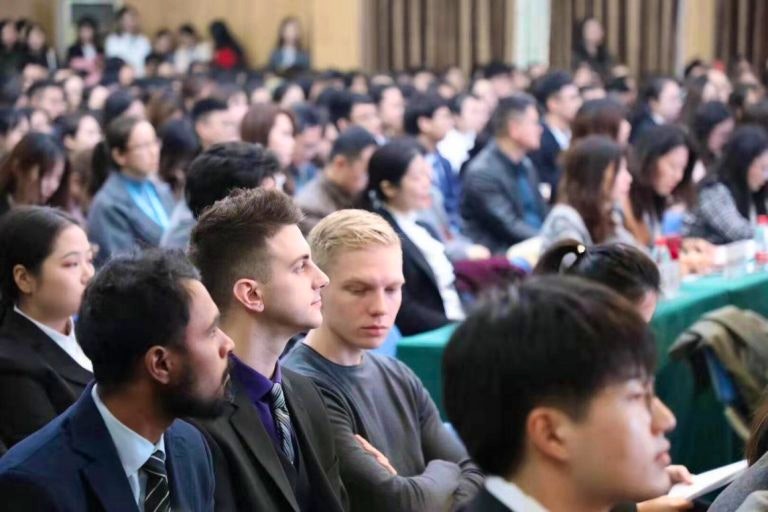
What made you get into healthcare?
I’m always fascinated by the human body and its intricacies. It’s ever-changing with the amount of science, evidence, and findings.
There’s always technology that can be paired with biometrics so things can always keep evolving and be interesting and people always need to see a doctor just like everyone needs tires on a car.
How would you describe China in one word?
Convenient
Is there anything you’d like to tell people in Canada or around the world about China?
I’d say come to China. It’s not scary at all, it’s very safe. If you have any doubts there are many people here who are willing to help you adjust to your new life.
It’s a great place of opportunity for people who speak English and have North American or European accents. It’s a place where many people admire your passion and skills even by just being from a different country. Chinese people are very accepting.
Thank you, James, for sharing your experience in China and your helpful insights about BFSU. Best of luck!
BFSU is a leading University in Beijing, traditionally specialising in the training of Chinese ambassadors and diplomats. It is a university well-respected for its reputation in academic excellence and quality education. Learn more about BFSU here.
Planning to apply at BFSU but don’t know how to start? Get in touch with China Admissions!
- Top 10 Ranked Chinese Universities - January 10, 2025
- China Scholarships – The 2025 Guide for International Students - December 30, 2024
- 9 Fascinating Things About Christmas In China - December 24, 2024
